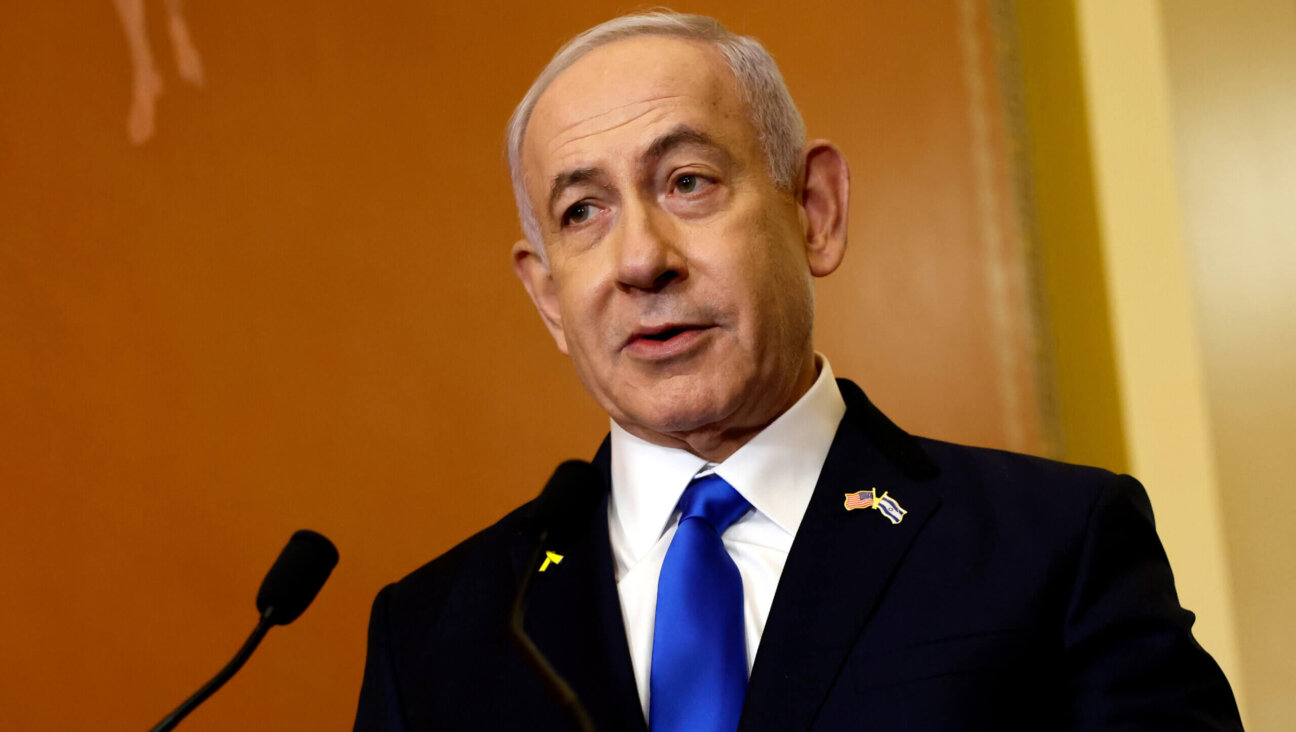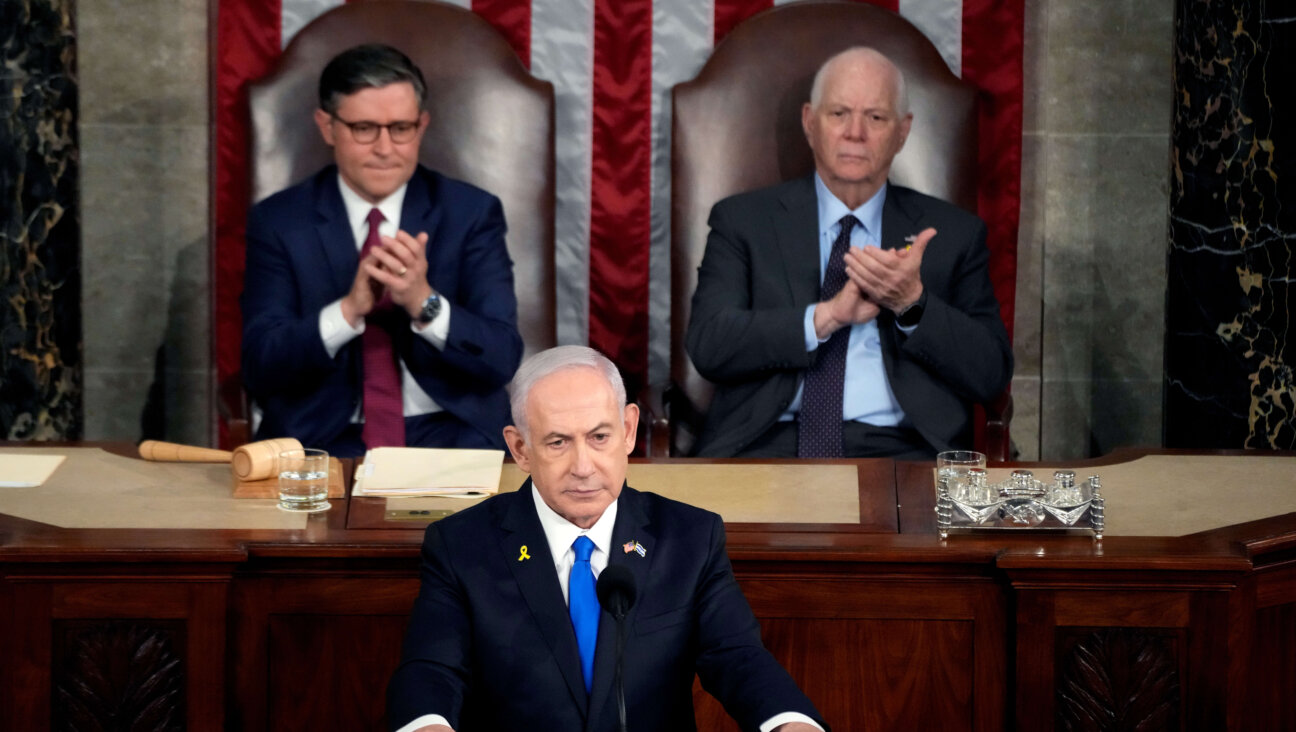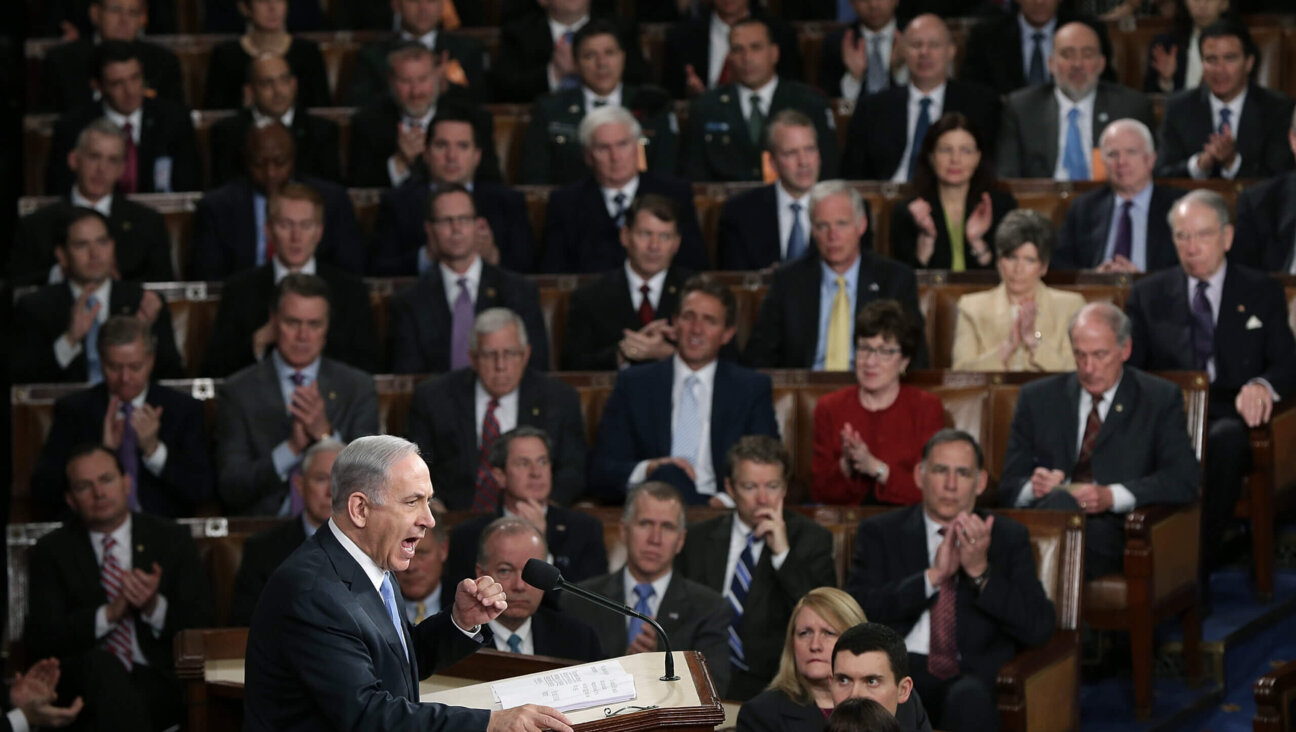Save Sudan
The green banners have draped the walls of Jewish centers and synagogues for years now, a public sign of the sympathy and responsibility so many American Jews share for the suffering people of Darfur. If there is a hell on earth, surely it is that barren region of western Sudan, where more than 3,300 villages have been damaged or destroyed by brutal attacks conducted by the Sudanese government and its allied militias.
Those attacks — delivered with horrifying ferocity from bombers in the air, or from gunmen racing through villages on horseback — have left more than 200,000 dead (and that’s the most conservative estimate) with another two million displaced. We’ll never know how many women and girls were raped. We do know that these casualties were not the random, collateral damage of a war with a broader purpose, but rather the result of a systematic offensive by the Arab-led government to drive darker-skinned civilians from the Fur, Zaghawa and Masalit ethnic groups off their land and to destroy their lives.
In other words, an act of genocide. The United Nations never used that word, but the United States did, along with other nations, as well as human rights and activist organizations.
The haunting photographs and stories emerging from Darfur at the height of the violence in 2003 and 2004 stirred the conscience of many Jews. Whether through explicitly Jewish organizations — such as the Religious Action Center of Reform Judaism, the United States Holocaust Memorial Museum and the American Jewish World Service — or in leading the efforts of other groups, Jews were and continue to be at the forefront on this issue, much to the community’s honor. At the first, massive rally to “Save Darfur” on Washington’s National Mall in 2006, one could not count all the kippot worn by protesters, they were so numerous.
But it’s time to shift the focus from Darfur to the broader, even more complicated, and potentially more ominous situation in all of Sudan. If civil war breaks out between the politically powerful north and the oil-rich south, “the atrocities in Darfur will pale in comparison to what will happen,” predicts Andrew Natsios, special envoy to Sudan in 2006 and 2007. The green banners need to be rewritten. To save Darfur, we must help save Sudan.
The shift is driven in part by a changing reality in Darfur, where the mass killings have largely stopped and, while massive humanitarian challenges remain, the heartbreaking narrative of death and deprivation is lifting. “There is a significant difference between what happened in 2003, which we characterized as genocide, and what is happening today,” Scott Gration, the retired air force major general who is President Obama’s top Sudan envoy, told Congress on July 30.
In recognition of this shift, the Holocaust Museum on August 3 changed its categorization of conditions from a “genocide emergency” in Darfur — the highest level of alert — to a “genocide warning” for the entire country. “Although violence persists in Darfur, it is of a different character, with rebel groups and criminal elements responsible for violence along with the Sudanese government,” Mike Abramowitz, director of the museum’s Committee on Conscience, explained. “Our concerns focus on the challenges for Sudan as a whole and the imminent risks to large segments of the civilian population.”
Understandably, some activists disagree, and are legitimately worried that moving the spotlight from Darfur will result in further death and destruction — or, as one called it, “genocide by attrition.” Jerry Fowler, president of the Save Darfur Coalition, argues: “The same people who were at risk are at risk. Villages are not being destroyed, but people still live in very tenuous circumstances.”
While some activists say that the debate over language is a distraction, a matter of semantics, we respectfully disagree. If the word “genocide” is to retain its critical power, then it must be employed with utmost care and specificity. As Abramowitz explains, drawing distinctions is difficult but important, “because doing so helps shape the proper policy for saving lives.”
And that proper policy ought to focus on both goals: Without losing sight of the continuing needs of Darfur, we need to press the Khartoum government in the north and rebel leaders in the south to follow through on the Comprehensive Peace Agreement they signed in 2005. Remember that their previous war, which began in 1983, killed two million people, 10 times more than Darfur’s fatalities. The 2005 agreement calls for South Sudan to vote in 2011 on whether to secede, and if the government of President Omar al-Bashir remains in power in Khartoum, secession is likely. But the north is just as likely not to let the south, so rich in oil, separate without a fight. As Nicholas Kristof has written, “If you believe that Sudan is so wretched that it can’t get worse, just wait.”
The world cannot wait. All the attention, emotion, organizing and sympathizing that has been directed toward the suffering of Darfur now must focus on persuading the Obama administration to develop a strong and coherent plan to bring about a political settlement in Sudan.
This has proven to be surprisingly difficult. Despite candidate Obama’s consistent support for the cause of ending genocide in Sudan, President Obama’s top officials cannot seem to resolve their own internal differences. Sudan envoy Gration’s push for further engagement with the Khartoum government is reportedly at odds with the tougher approach advocated by Susan Rice, the American ambassador to the United Nations. The right balance of pressure and incentives needs to be found so that the United States, which brokered the initial peace agreement, can help promote its implementation.
Sudan represents the ultimate diplomatic challenge: to persuade a ruthless dictator who has slaughtered his own people — a man indicted as a war criminal — to negotiate with violent rebels; to persuade warring tribes and factions to share their needy land, not to destroy it; and to persuade a patriarchal society to stop raping, abusing and otherwise dehumanizing its women. If a solution was obvious, it would have appeared long ago.
The Jewish community cannot walk away just because a cause it championed has shifted and become more difficult. The Judaic imperative to care for the stranger, to speak out against genocide and to promote human rights remains just as relevant today as it was when painful images of Darfur’s suffering first crossed our consciences.
Let’s continue to save Darfur and Sudan.
A message from our editor-in-chief Jodi Rudoren

We're building on 127 years of independent journalism to help you develop deeper connections to what it means to be Jewish today.
With so much at stake for the Jewish people right now — war, rising antisemitism, a high-stakes U.S. presidential election — American Jews depend on the Forward's perspective, integrity and courage.
— Jodi Rudoren, Editor-in-Chief























